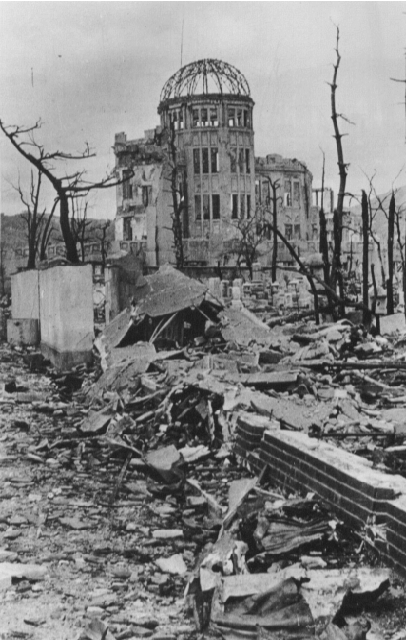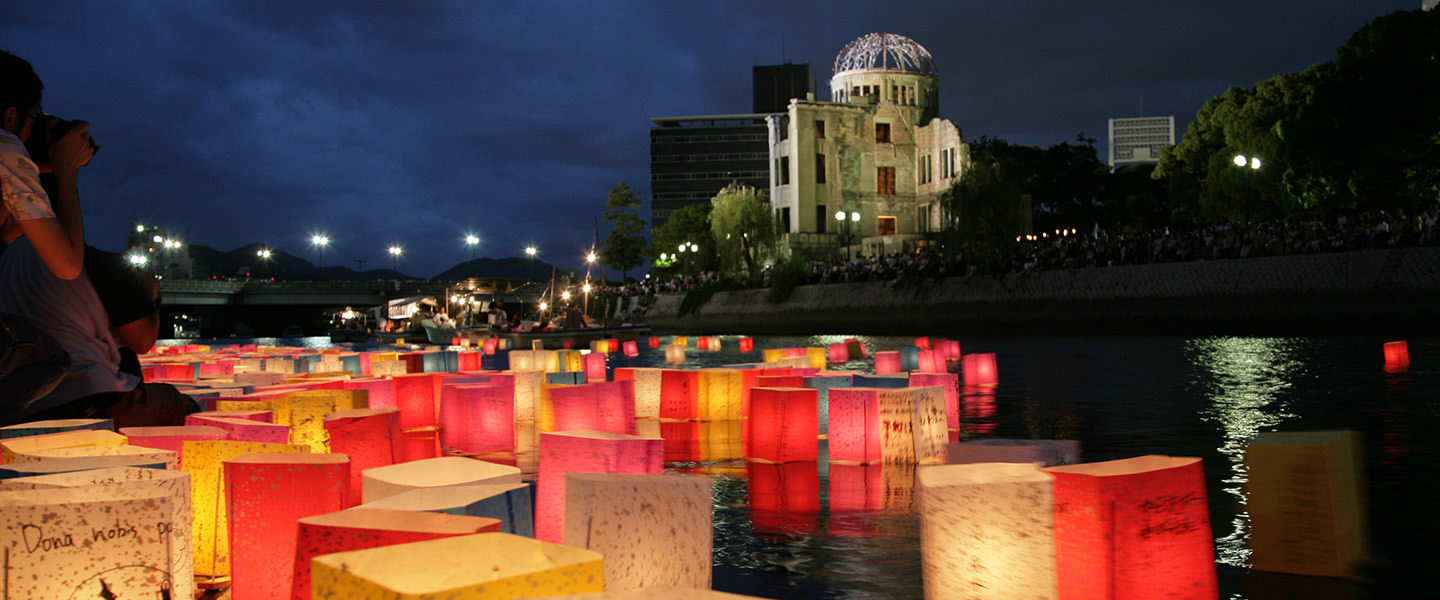
Good Afternoon, Poets! Frank J. Tassone here, hosting this week’s Haibun Monday. For those that don’t know, haibun is a form of Japanese poetry that combines prose, or prose poetry, with haiku.
Tomorrow marks the anniversary of the atomic bombing of Hiroshima. Last year, we commemorated this memorial for Haibun Monday (August 6, 2018). Just like last year, the city of Hiroshima will once again hold its annual Hiroshima Peace Memorial Ceremony:
The Hiroshima Peace Memorial Ceremony is held each year on August 6th, the anniversary of the atomic bombing of Hiroshima, at Hiroshima Peace Memorial Park. Some 50,000 local citizens and visitors, as well as ambassadors and dignitaries from around 70 countries, gather here to console the spirits of those killed by the atomic bomb and also to pray for lasting world peace…
…Remembering the 140,000 irreplaceable human lives that were lost, either on the day of the bombing or in the ensuing months, and the numerous atomic bomb survivors who still suffer from its aftereffects even to this day, one cannot help but be left with a strong sense of the horrors of nuclear weapons and a strong hope for world peace in one’s heart.

While the memorial commemorates the fallen, it is also an occasion to reflect on hope. Haiku poet Yasuhiko Shigemoto, whose haiku I shared last year, has written other Hiroshima-themed haiku that exemplify this:
A-bomb blast center,
the school excursion students
tolling the peace bell
New blades of grasses
breaking through
the A-bombed earth !
Budding,
this A-bombed tree
still alive !
Copyright Yasuhiko Shigemoto , 1995
Publ. : 2003-09-22
Upd. : 2018-11-30
Other poets have found hope in the horror:
November
By: William Stafford
From the sky in the form of snow
comes the great forgiveness.
Rain grown soft, the flakes descend
and rest; they nestle close, each one
arrived, welcomed and then at home.
If the sky lets go some day and I’m
requested for such volunteering
toward so clean a message, I’ll come.
The world goes on and while friends touch down
beside me, I too will come.
William Stafford (1914-1993) was a conscientious objector in World War II and worked in the civilian public service camps. Later, he taught at Lewis and Clark College and published more than 65 books of poems. In 1970 he served as the Consultant in Poetry to the Library of Congress.
Let Us Be Midwives! An untold story of the atomic bombing
by Sadako Kurihara, translated by Richard Minear
Night in the basement of a concrete structure now in ruins.
Victims of the atomic bomb jammed the room;
It was dark—not even a single candle.
The smell of fresh blood, the stench of death,
The closeness of sweaty people, the moans.
From out of all that, lo and behold, a voice:
“The baby’s coming!”
In that hellish basement,
At that very moment, a young woman had gone into labour.
In the dark, without a single match, what to do?
People forgot their own pains, worried about her.
And then: “I’m a midwife. I’ll help with the birth.”
The speaker, seriously injured herself, had been moaning only moments before.
And so new life was born in the dark of that pit of hell.
And so the midwife died before dawn, still bathed in blood.
Let us be midwives!
Let us be midwives!
Even if we lay down our own lives to do so.
Sadako Kurihara (1913 – 2005) was a poet, writer and peace activist who survived the Hiroshima bombing. “Let Us Be Midwives” was based on her experience in a shelter in the aftermath of the bombing. (In reality, the midwife survived and was later able to meet the child she had delivered.) Translator Richard Minear is professor emeritus at UMass Amherst.
Hiroshima
In four poems
August 6
PBS
Let us again write our own haibun to commemorate Hiroshima! This year, however, let us focus not on despair of nuclear holocaust, but on hope born of rising from the ashes!
If this is your first time, here’s how to join:
- Write a haibun that references Hiroshima or a related theme as described above
- Post it on your personal site/blog
- Copy your link onto the Mr. Linky
- Remember to click the small checkbox about data protection.
- Read and comment on some of your fellow poets’ work
- Like and leave a comment below if you choose to do so
- Have fun!

Good evening all and thank you for hosting., Frank. Such a sad and tragic day to commemorate.
Afternoon and Evening, Poets! The Pub is open. Thanks, Kim, for the greetings!
Thank you Frank. It is hard for me to be hopeful about Hiroshima and Nagasaki. It seems we have learned nothing from the tragedy. I have Japanese friends who survived the tragedy and they are bitter about it. There is some sprinkling of hope about the anti-nuclear movement. Fukushima and the exclusion zone is too close to them to feel any comfort from paper cranes. Maybe one day, we will all learn.
I can’t even imagine how difficult it must have been for the Japanese people to recover. from Hiroshima or Nagasaki. Nor I will ever blame any of the survivors that could not move on. I simply admire the resilience of the people that, on the whole, did so.
I do too but….
Hi Frank and All. In a strange bit of serendipity, I just finished publishing a post on an anime series, The Big O, about a fictionalized account where: “The story takes place forty years after a mysterious occurrence causes the residents of Paradigm City to lose their memories.” To me, it’s a euphemism for the A-bombing of Hiroshima. Will do my best to recollect the horror in a non-horrific way.
Ah, the synchronicity of poets! Looking forward to it! 🙂
Thanks, Frank. Maybe poets are tapped into a poetic collective unconscious? 😉
That is an intriguing possibility! 🙂
I think we may be! 🙂
🙂
Pingback: Hiroshima – Reena Saxena
Thank you for hosting, Frank. It is difficult to be hopeful.
Pingback: Haibun: A Day for Peace – Tranature
Thank you for hosting here today Frank, despite the current state of the world I remain hopeful that peace will ultimately prevail. I’ve linked up a haibun and will swing by later to read.
Thank you, Xenia, for joining us, and remaining hopeful! We all need to hold onto hope, especially during times like these!
Pingback: A Phoenix in Kyoto – Haibun Monday – JP the Wide-eyed Wanderer
Thank you for hosting Frank. I delayed contributing a post to this prompt because I do not like to dwell on horror. I finally chose to focus on peace — a personal piece I discovered. This is late, but this is the direction inspiration took me.
I am posting it for OLN.
Hi Rob! Thanks for sharing. The link for Haibun Monday is still open, and it will be for the next two days.
I wrote this and somehow forgot to post it. I like it, so here’s the link, even though I missed the linky: https://xanhaiku.wordpress.com/2019/09/02/all-the-tomorrows/